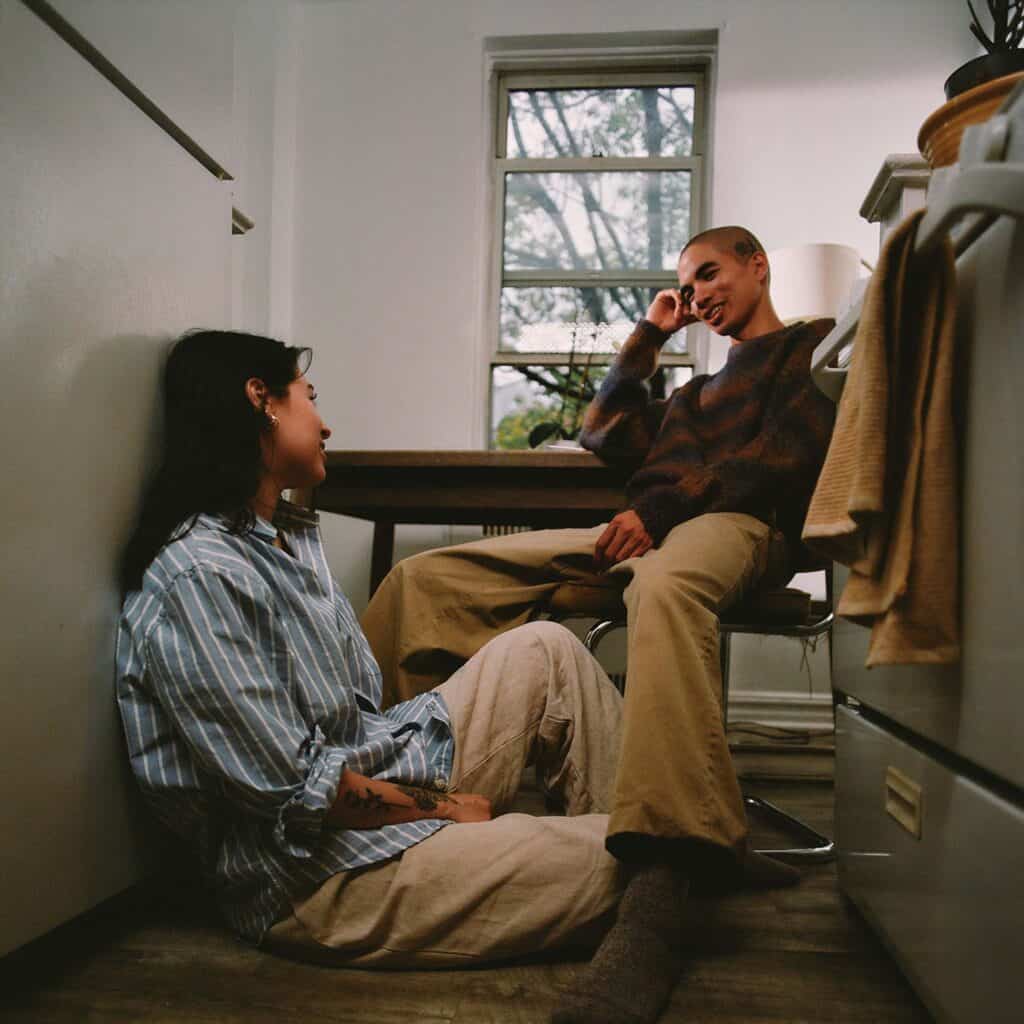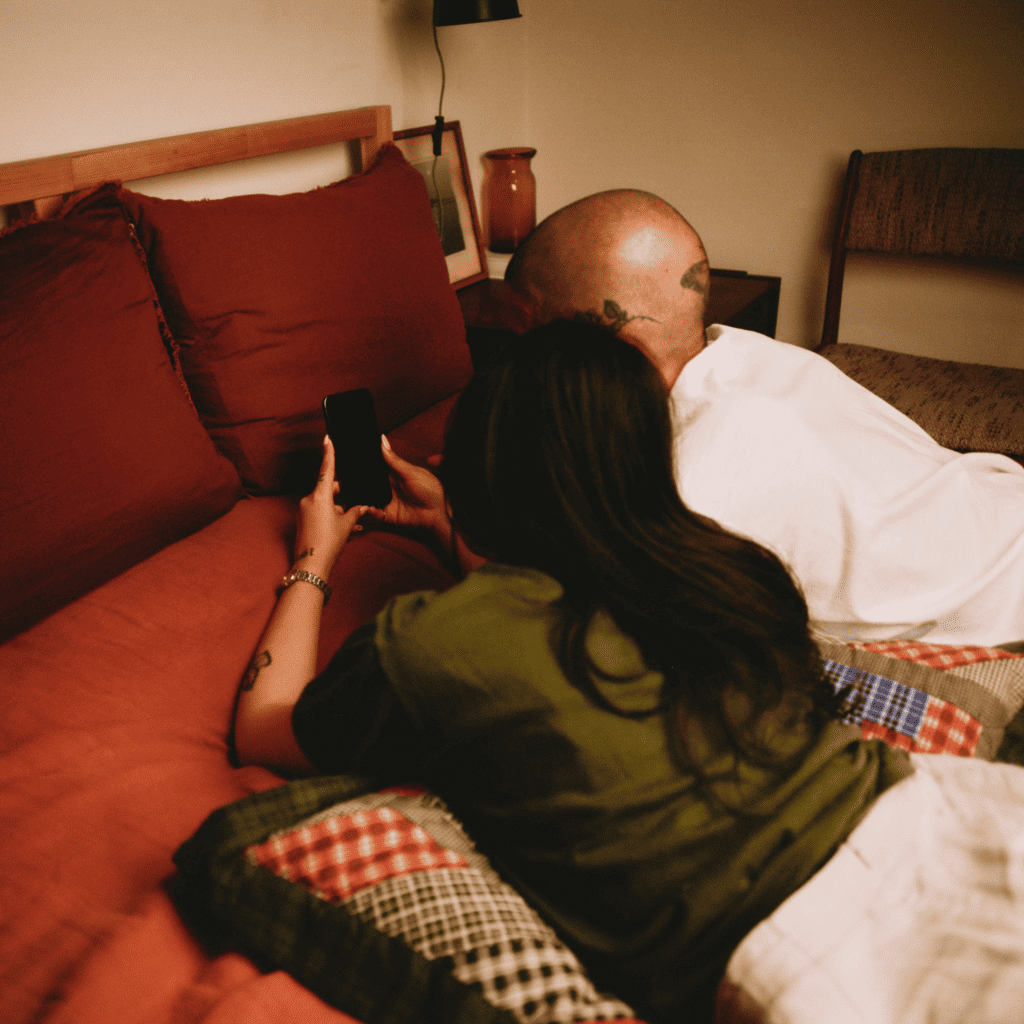Relationship wellness
11 types of couples therapy and their benefits (+ exercises)

contents
There’s no one-size-fits-all form of couples therapy, which is why there are a wide range of options to choose from to strengthen your relationship.
Every couple is unique, so it’s beneficial to have options when you begin couples counseling. Whether you’re in a long-term relationship, engaged, or have been married for multiple years, therapy for couples can help ensure that you have a healthy, long-lasting relationship. Due to the differences in each relationship, it’s helpful to understand the different types of couples therapy.
Some couples may struggle with intimacy in their marriage, and others may just want to learn how to overcome the challenges of major life transitions. Regardless of your specific situation, there’s a form of couples therapy that can help improve the health of your relationship.
Below, we discuss 11 different types of couples therapy to help you as you search for a therapist because you’ll know which therapeutic methods may work best for you.
What is couples counseling
Couples counseling is a form of therapy designed for people in relationships. You can be unmarried in a long-term relationship or married with children and find couples counseling helpful. Despite what some may believe, couples therapy isn’t just for people who are having a lot of conflicts in their relationship. Many people come to improve their marriage and learn different strategies to communicate better and resolve inevitable conflicts that arise in any relationship.
Some people are concerned that couples counseling is the beginning of the end of a relationship, but this isn’t the case. In fact, research shows that couples and marriage counseling work. Working with a qualified therapist will allow you and your partner to try different couples therapy techniques that can help you resolve conflicts, improve your physical and emotional intimacy, make plans for the future and much more.
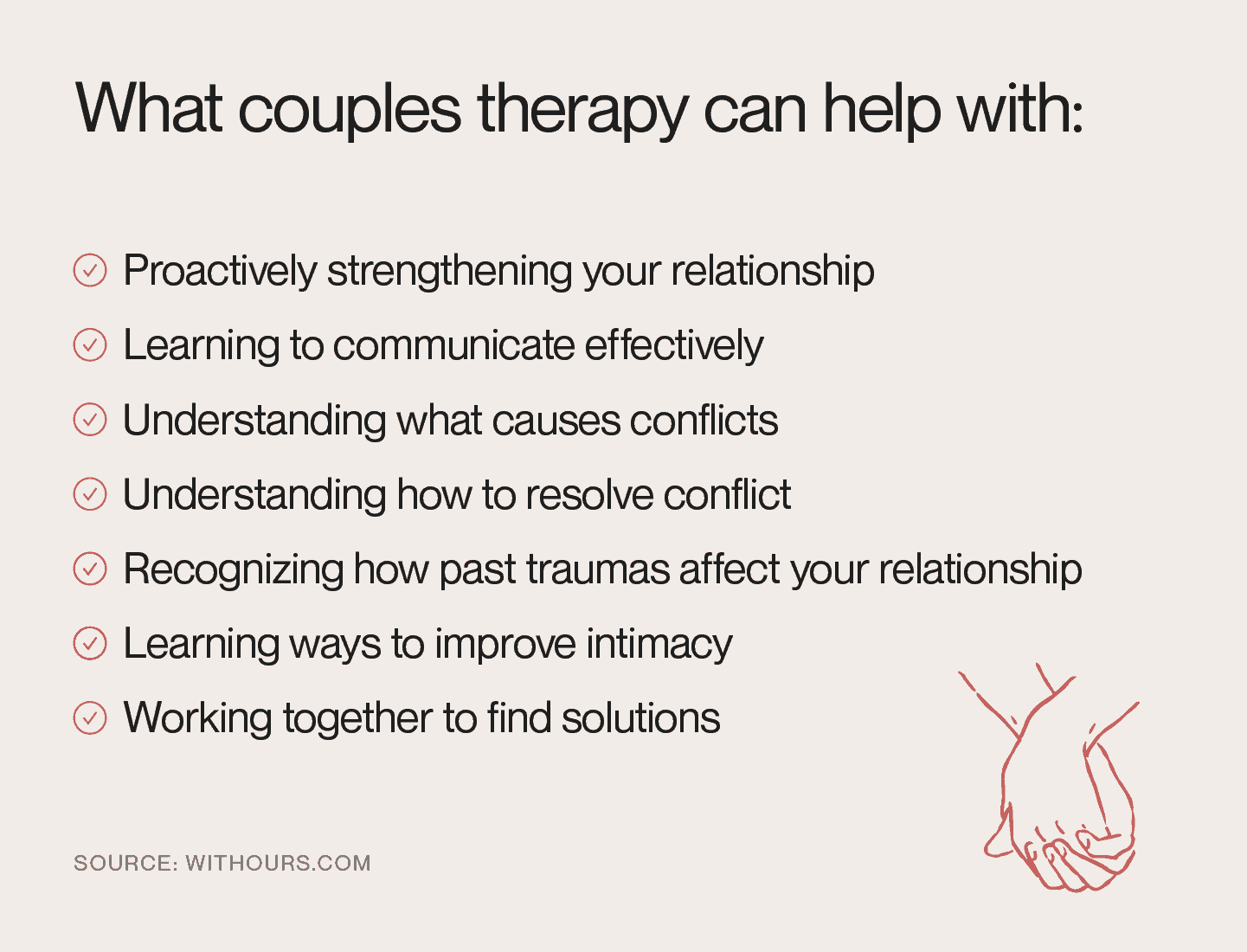
11 types of couples therapy
Now, we’ll go over 11 different types of couples therapy and how they work. When you’re looking for a couples therapist, it is helpful to look at the cost of a couples therapist, but it’s also beneficial to understand their specialties. In the following list, you may find that some of the couples therapy interventions may benefit specific situations you’re dealing with more than others. This can help you find the therapist who is right for you.
Allow Ours to help you find the couples therapist who is right for you
1. Gottman method
The Gottman method is one of the more structured approaches to couples therapy, and it comes from the psychologist and relationship researcher John Gottman. He had a theory that he could use the scientific process to find what makes for a successful marriage. In one study, he was able to predict with 94 percent accuracy which couples would divorce.
By understanding what keeps couples together and what leads to divorce, he came up with the Gottman method. This method relies on giving couples skills to solve problems in their relationship while also enhancing physical and emotional intimacy. This method also teaches couples that some problems are unsolvable, but couples can work through them together.
2. Emotionally focused therapy (EFT)
The goals of EFT are to assist with better communication while also developing a more secure attachment with your partner. Many couples who have been together for a while are caught in repetitive patterns of feeling unheard, unwanted and attacked. Through EFT, you work closely with a therapist to increase the safety and security one or both partners feel within the relationship.
During difficult times in a relationship, you may feel powerful emotions. These are coming from an insecure place. EFT helps you to dig deep to see what emotions you’re feeling and why. Many of these feelings are related to fears, which may be from past relationships or traumas. With EFT, you’ll learn how to communicate these emotions, a powerful way to bring partners closer together with compassion and understanding.
“EFT is a great modality for couples looking to deepen their bond. It’s an evidence-based method that has transformative benefits that strengthens the foundation of relationships.”
-Benu Lahiry, LMFT
3. Premarital counseling
There are many different reasons to give couples therapy a try, and one of them is to proactively strengthen your relationship and plan ahead prior to getting married. Pre-marriage counseling helps couples align their long-term goals when it comes to family planning, finances and major life decisions. It also helps you avoid common mistakes, anticipate conflict and learn how to healthily resolve conflict.
Premarital counseling is a great way to prepare for your marriage and enrich your relationship proactively. The great thing about premarital counseling is that you don’t need to be engaged to give it a try. Many couples in a long-term relationship attend this type of couples therapy and benefit just as much.
4. Imago relationship therapy (IRT)
IRT was developed in the 1980s by the psychotherapist Harville Hendrix and his spouse, Helen LaKelly Hunt, PhD. They believe that many conflicts, misunderstandings, and insecurities in relationships develop from childhood. When using this method, you and your partner look to your past to better understand where present issues stem from. Then, you learn to address these issues and work on them together to build a healthier relationship.
5. Sex Therapy
Sex is a common reason that couples turn to couples therapy, and sex therapy can help you bring intimacy back to your relationship. Sometimes, one partner wants it more than the other, and sometimes, couples just don’t feel comfortable exploring different forms of intimacy. Working with a couples sex therapist can help you learn how to communicate your wants and needs while discovering ways to improve your physical and emotional intimacy.
Many challenges can arise and cause a lack of intimacy in relationships. These issues can stem from a low libido, low confidence, past traumas, and much more. By working with a therapist, you can uncover the causes of these issues and find healthy ways to work on them together.
6. Cognitive behavioral therapy (CBT) for couples
Some people believe that CBT is just for individual therapy, but it can be great for couples, too. Cognitive behavioral therapy is an evidence-based treatment method that has been scientifically proven to show positive results. CBT works by helping us catch a variety of cognitive distortions or inaccurate and unhelpful ways of thinking, such as:
- Catastrophizing: Believing things are much worse than they are.
- Black and white thinking: Thinking things are either all good or all bad with no middle area.
- Generalizing: Using words like “always,” “never,” “everything” and “nothing.”
- Mind reading: Believing you know what another person is thinking without them actually communicating that thought.
- Discounting the positive: Dismissing the good things and focusing on the negative.
This is only a small list of cognitive distortions, but as you can see, many of these ways of thinking can cause relationship issues. Cognitive behavioral therapy for couples helps you spot these unhelpful thinking patterns and train your mind to replace them with more rational ways of thinking. This helps couples avoid unhealthy conflicts and recognize the positive aspects of their relationship.
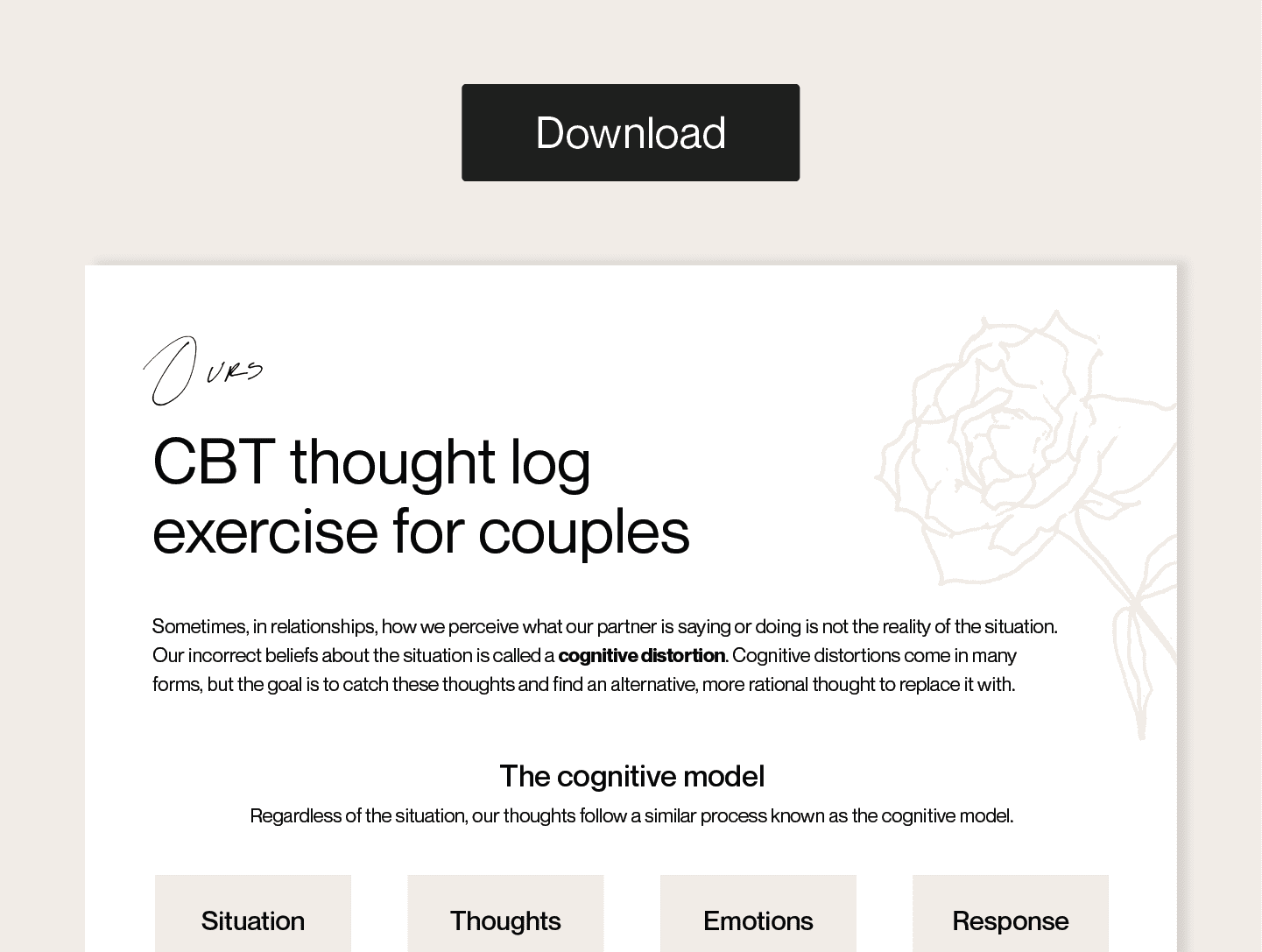
7. Psychobiological Approach to Couples Therapy (PACT)
PACT is a form of couples therapy that gets straight to the issues and helps couples identify what they’re feeling during conflicts. This form of therapy combines emotional regulation, attachment theory, and neuroscience.
This therapy not only helps you recognize what’s happening with your mind and body during conflicts, but it also puts an emphasis on reading your partner’s body language to better understand how they’re feeling.
8. The development model
The developmental model is rooted in the belief that conflict arises because partners are in different stages of growth. We all have room to grow, and the goal of the developmental model is to help each partner grow and evolve in a way that benefits the relationship.
Both partners will learn to be more self-aware and identify their potential areas of growth. Through this method, both partners are committed to self-improvement and learning ways to resolve conflict in a healthier way while growing together.
9. Discernment counseling
This form of therapy is different because it’s for relationships where one or both partners are unsure if it’s time to end the relationship. Ending a relationship is a major decision, and sometimes, one or both people in the relationship aren’t sure if the relationship issues can be resolved.
Through discernment counseling, you’ll feel much more confident in your decision. While this therapy isn’t about repairing a relationship, should you decide to stay together, you can try other forms of couples therapy to overcome some of your specific challenges.
10. Narrative therapy
We all have our own perspective of a situation or relationship, which is often much different than someone else’s.
Narrative therapy works by having each person in the relationship describe the relationship in a narrative form. From here, couples come together to rewrite their story together. This can be a helpful tool that allows you to see each other’s perspectives and connect on a deeper level.
11. Solution-focused therapy
If you have a specific challenge in your relationship that you and your partner want to work on, solution-focused therapy may be the one for you. Some couples get stuck on the same problem for long periods with no resolution. When your therapist assists you with this form of therapy, you can break out of these patterns and focus on solutions that will help resolve the issue you’re dealing with.
Couples therapy exercises
In addition to talking with your therapist, couples therapy interventions involve different exercises that help reinforce the methods for the different modalities. These exercises may involve different communication methods, helping you develop deeper connections, learn how to forgive, and more.
Not only will these exercises be helpful within each session, but you can use some of these exercises outside of therapy to strengthen your relationship further.
Focusing on solutions
Sometimes, couples get caught up in the blame game when there’s a recurring problem. This becomes a never-ending cycle, which is why a great exercise is focusing on the solution. When couples run into a disagreement, it’s helpful to pause and ask, “What would help us come to a solution?”
For example, if someone in the relationship isn’t feeling appreciated, the solution may be to show that partner appreciation when possible. In return, the partner, feeling unappreciated, acknowledges it and focuses on their partner’s willingness to put in this effort.
Learning to identify feelings
Sometimes, we become disconnected from our feelings. This can lead to unregulated emotions and being unsure of where they’re coming from. Practicing how to identify your feelings is a great way to understand what’s going on and see the truth of what’s happening.
Some therapies help you realize that some of your fears and anxieties may come from the past and aren’t necessarily rooted in what’s happening in the present. Mindfulness is a great way to pause and practice recognizing your emotions. Then, you can communicate with your partner to work on the situation together.
Reflective listening
Aside from intimacy, communication is one of the common issues in a relationship. During disagreements, one or both partners may not feel heard, and that’s where reflective listening comes in. This form of therapy teaches both partners how to be better listeners. The therapist acts as a guide, allowing each partner to take turns speaking freely while the other listens.
Some couples pick up bad communication habits that can escalate conflicts within their relationship, such as saying “you,” which can invoke feelings of blame. During reflective listening practices, you’ll learn new communication methods, like using more “I” statements to have more productive conversations.
Expressing gratitude
After being with someone in a relationship for a long time, it’s common to get caught up in a routine and not express gratitude. One person may be expected to do the cleaning around the house or take care of the kids. Maybe one partner works more than the other to help provide for the family. We all appreciate feeling appreciated, and when you’re putting in the effort without feeling appreciated, it can lead to resentment.
A great exercise is to practice gratitude for your partner on a daily basis. There’s an endless list of what you can express gratitude for. You can be grateful for your partner listening to you after you had a rough day, or you can say, “Thank you,” after your partner does a chore. This shows you recognize their effort and truly appreciate it.
Making time for each other
Whether it’s work, taking care of the family, or spending time with friends, some couples drift apart and spend less and less time together. This can lead to a lack of both emotional and physical intimacy, where both partners are going through the motions.
It’s important to carve out time for each other in relationships. This can be a weekly date or even just spending some time at the end of the day to converse.
Exploring the past
This can be a difficult one, but it’s important for anyone whose past is affecting their current relationship. Past relationships with significant others, family members, friends, and strangers can lead to fears, anxieties, and anger in relationships. By regularly looking at and analyzing your past, you can see if your reaction to a current situation stems from something in your past.
For example, some people find that they have trust issues in a relationship, although their current partner has not given them a reason to lack trust. When a person explores their past, they may see that they couldn’t trust an ex or couldn’t trust a parent, and now their past is harming their current relationship.
Speaking each other’s love language
Everyone has a love language, and a great way to grow closer together is to speak each other’s love language. Love languages include:
- Affirmation
- Physical touch
- Receiving gifts
- Spending quality time
- Receiving help
This exercise involves learning one another’s love language and speaking it when possible. Speaking your partner’s love language helps you better understand what makes them feel loved and appreciated, and that’s healthy for any relationship.
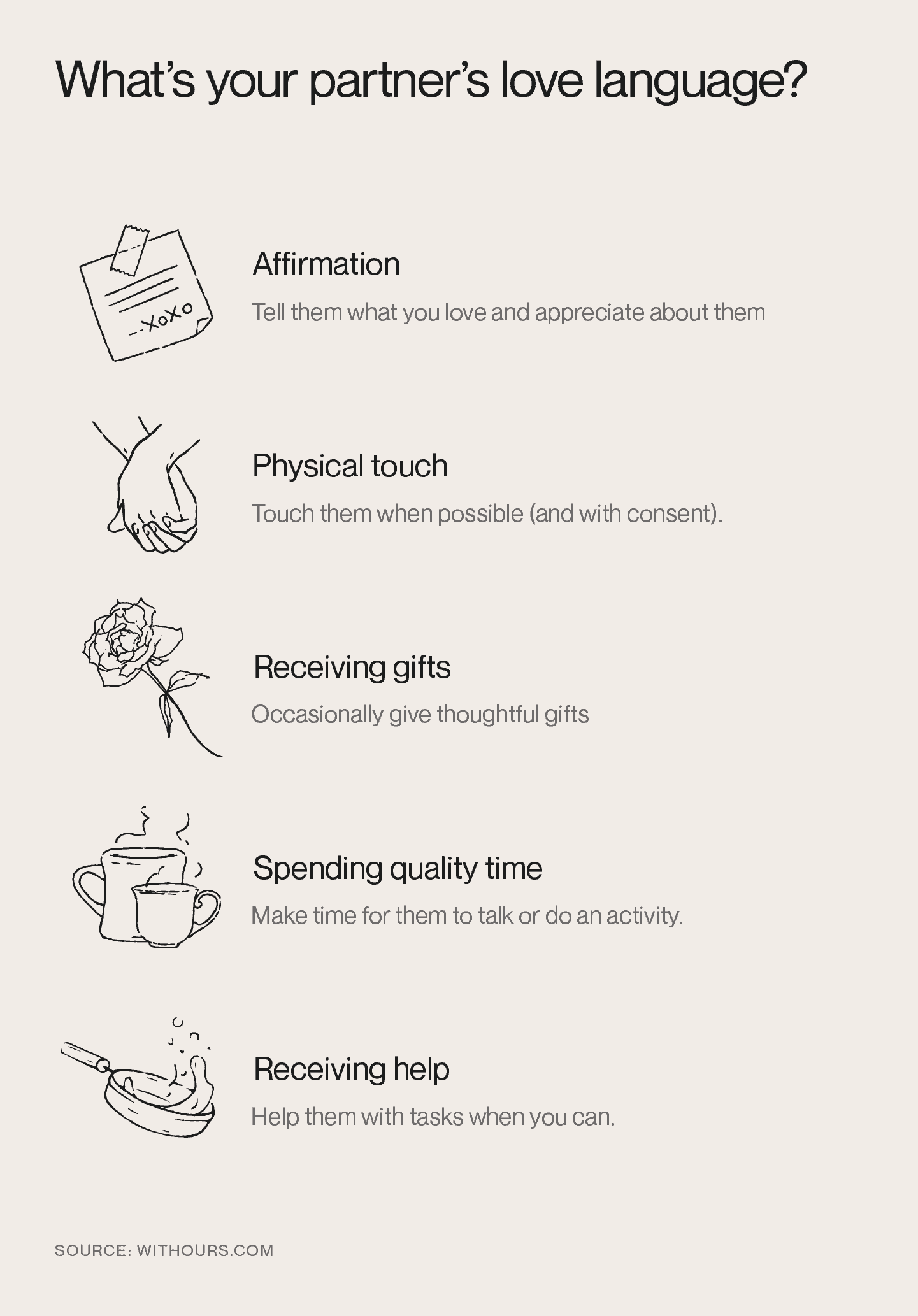
Let Ours find the best couples therapist for you
Whether you’re married or in a long-term relationship, couples therapy can help you and your partner build a stronger and healthier relationship. Not only will you grow together, but you’ll gain the tools to overcome any challenges you face in the future.
If you’re ready to give couples therapy a try, Ours specializes in couples therapy, and we have a variety of therapists who use different types of couples therapy to fit your specific relationship. In addition to our various forms of therapy, we’ll also hand-match you with the right therapist. To get started, sign up today.



